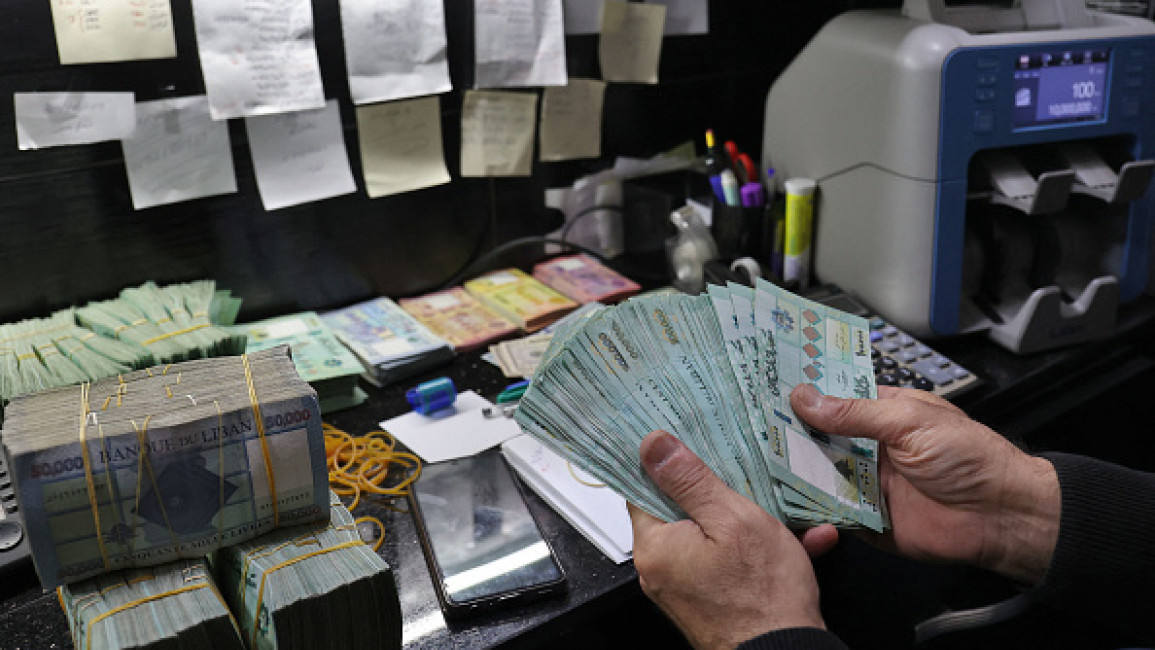Lebanon central bank vice governors propose move to floating FX rate by Sept.
The vice governors of Lebanon's central bank have proposed lifting the longtime peg on the country's local currency and moving to a managed float by the end of September, according to a copy of their proposal seen by Reuters on Thursday.
The Lebanese pound has lost more than 98% of its value on the parallel market since an economic meltdown began in 2019. In February, the central bank devalued the official rate from the decades-old peg of 1,500 to the U.S. dollar to 15,000.
On Thursday, the central bank's vice governors met with a group of parliamentarians to propose changes to the country's monetary policy, primarily by moving to a "managed floating" system to reflect the "real value" of the pound.
Their proposal said the bank would "commit to setting the rules and regulations to move exchange rate into a floating system by end of September 2023 with the ability to intervene when necessary".
It also proposed setting up a new electronic platform for foreign exchanges, but said the bank would continue to buy U.S. dollars in the market when possible to avoid leaning on reserves to prop up the pound.
"A no-profit country": Examining Lebanon's endless financial crisis
— The New Arab (@The_NewArab) April 16, 2023
✍@strwaterdanio https://t.co/dnW7SqnsDq
Central Bank Governor Riad Salameh oversaw the country's pegged currency during his 30-year tenure, which is set to expire at the end of the month.
Salameh is facing charges both at home and abroad of embezzlement of Lebanese public funds. He denies the accusation.
Under his watch, the central bank set up the controversial exchange platform known as Sayrafa as a way to stabilise the Lebanese pound, which nevertheless continued to decline.
Lebanese authorities and international institutions criticised Sayrafa for its lack of transparency, unsustainability and the opportunity it created for arbitrage.
One of the bank's four vice governors, Salim Chahine, told Reuters earlier this week that the bank was planning to phase out Sayrafa once Salameh leaves office.
Without a named successor to Salameh, first vice governor Wassim Mansouri will take over primary responsibilities. Local broadcaster Al-Jadeed quoted Mansouri as saying lawmakers would review their proposal over the next few days.
The plan also proposes that parliament amend legislation to allow the central bank to lend the government up to $1.2 billion over a six-month period and issue bank notes bigger than 100,000 pounds.
Lebanon's economy began collapsing after decades of corruption, profligate spending and mismanagement by the ruling elite, including a policy of central bank lending to the state to support a bloated public sector.
The plan said the 2023 budget should be approved by the end of August and that next year's budget by the end of November.
The document also said the government should approve the gap resolution and restructuring laws by the end of September.
Those laws and the budget completion are among measures required for Lebanon to get access to $3 billion in from the International Monetary Fund.
But the IMF says vested interests in Lebanon have hampered a financial reform programme.
(Reuters)



